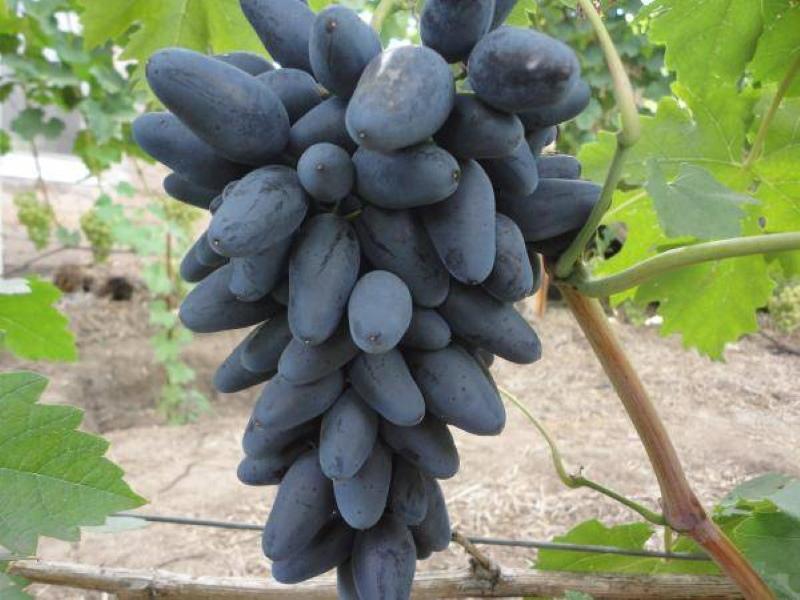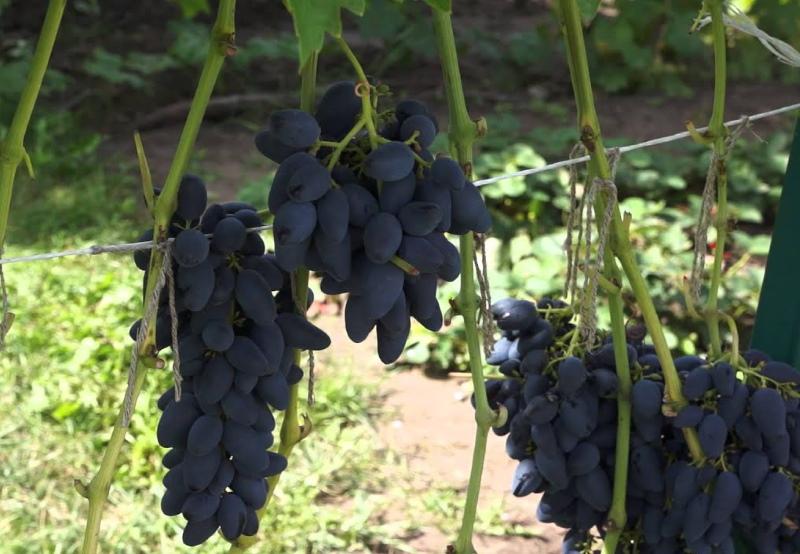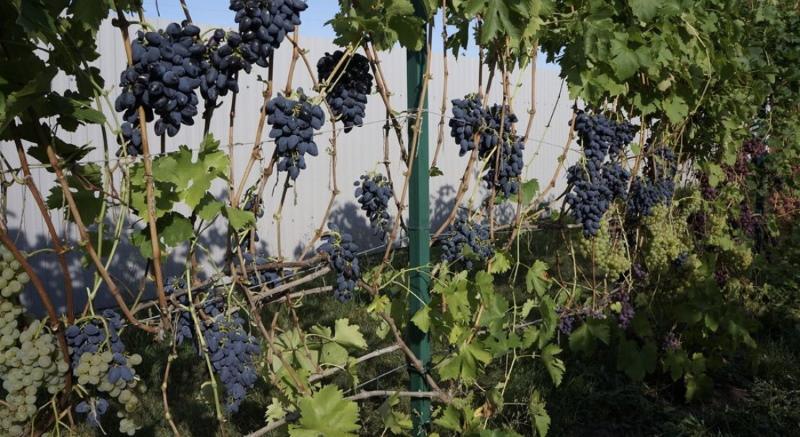Viking grapes - description of the variety, photo of one of the best early hybrids
 If you want to get the earliest harvest of sweet and large berries, plant at least one Viking bush on the site. Viking grapes, a description of the variety, a photo of the harvest will only confirm your choice. Although the bunches are not particularly large, the grapes in them are large, beautiful, deep blue, with fleshy and sweet pulp. In general, this species definitely has everything that a table variety needs.
If you want to get the earliest harvest of sweet and large berries, plant at least one Viking bush on the site. Viking grapes, a description of the variety, a photo of the harvest will only confirm your choice. Although the bunches are not particularly large, the grapes in them are large, beautiful, deep blue, with fleshy and sweet pulp. In general, this species definitely has everything that a table variety needs.
Viking grapes - description of the variety, photo

The declared winter hardiness of the variety is at the level of 21 ° C of frost, therefore, in the middle zone of our homeland for the winter it should be covered. Without shelter, the vine and fruit buds freeze too much. And in colder regions, it is even better to grow Viking in greenhouses.
The variety cannot boast of high resistance to diseases. The grape has a weak immunity to common cultural environment diseases: powdery mildew and mildew... However, timely preventive treatment will help avoid these problems.
Plant characteristic
 The bush itself is distinguished by high growth force, which is already demonstrated by young seedlings. They quickly take root and give a good increase over the season. And in a couple of years they turn into a spreading bush with large leaves.
The bush itself is distinguished by high growth force, which is already demonstrated by young seedlings. They quickly take root and give a good increase over the season. And in a couple of years they turn into a spreading bush with large leaves.
The variety, although thermophilic, does not like heat, and especially if there are sharp drops. In the years when the temperature "swing" is observed in summer, the quality of the crop decreases - the berries become smaller. Doesn't like Viking and waterlogging, and in a rainy summer the grapes crack.
The undoubted advantage of the hybrid is that it is self-pollinated. In addition, he himself can serve as a pollinator for other varieties.
Taste qualities
 Despite the whimsical nature of the shrub itself, the taste of the berries overshadows all negative aspects. Large, elongated grapes weigh less than 10 g, and they are all almost the same size. At the beginning of ripening, the berries are purple, by the time of collection they become dark blue. At the same time, the Viking's pulp is very juicy, fleshy and light. The dense skin protects it from wasps, but during consumption it is hardly felt. But it allows you to transport grapes over long distances. And even more than a month for him to be on the vine after ripening without shedding.
Despite the whimsical nature of the shrub itself, the taste of the berries overshadows all negative aspects. Large, elongated grapes weigh less than 10 g, and they are all almost the same size. At the beginning of ripening, the berries are purple, by the time of collection they become dark blue. At the same time, the Viking's pulp is very juicy, fleshy and light. The dense skin protects it from wasps, but during consumption it is hardly felt. But it allows you to transport grapes over long distances. And even more than a month for him to be on the vine after ripening without shedding.
The hybrid will not please with a high yield, because it often depends on weather conditions. With the help of proper agricultural technology, it is possible to achieve bunches weighing 1 kg, but their average weight is usually no more than 600 g.
Pros and cons of the variety
 Of the advantages of the Viking, it is worth highlighting, first of all:
Of the advantages of the Viking, it is worth highlighting, first of all:
- great taste;
- lack of peas and damage by wasps;
- early maturity;
- high growth rates;
- transportability;
- self-fertility.
Not without drawbacks, among which:
- average resistance to disease and frost;
- poor productivity;
- cracking of berries when waterlogged.